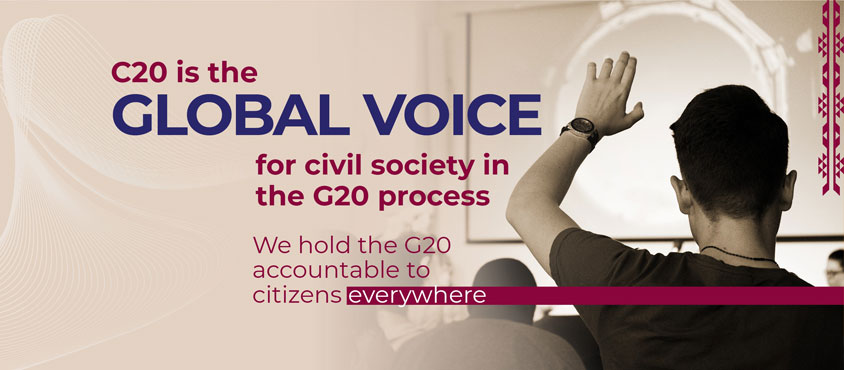
Building Global Citizenship in Latin America Youth: Inclusive Education Practices for Peace
About the Civil 20
The Civil 20 (C20) became an Official Engagement Group of the G20 in 2013. Since then, the C20 has grown stronger every year, ensuring that world leaders listen not only to voices representing the government and business sectors, but also to the proposals and demands of civil society, with the aim of protecting the environment and promoting social and economic development, human rights and the principle of leaving no one behind. Our work is guided by our principles of inclusivity, transparency, independence, collaboration, human rights, gender equality and women empowerment. This year the C20 Engagement Group is joined by more than 800 members from global Civil Society in 80 countries all round the globe.
This year has demonstrated the need to listen to all voices without discrimination or proxy. We are determined to host the biggest virtual gathering of Civil Society Organizations in the history of the G20, to make sure that no voice is being left behind at this historical conjunction.
We are expecting 4,000+ attendees and participants; including the G20 Presidency and senior officials, G20 Ministers, leaders of International Organizations, Inter-governmental Organizations
(IGOs), Non-governmental Organizations (NGOs), global experts, activists and influencers.
The Summit program was co-created in an inclusive manner with our members through session proposal submissions. The formats of our sessions will include:
Building Global Citizenship in Latin America Youth: Inclusive Education Practices for Peace
Thursday, 8th October 2020
2:30PM – 4:00PM
(Saudi Arabian Standard Time – UTC+03:00)
Register here: https://bit.ly/Join-C20
Session Description
Latin America is the most violent region on the planet due to higher crime rates. This can be attributed to multiple factors such as the rapid growth of cities and the lack of integration and employment for young people. The constant intra- and extra-continental migrations exacerbate this issue and cause greater competition for employment and economic opportunities. This scenario encourages the growth of violent behaviors that lead to stigmatization, discrimination, bullying and grooming. Beyond state action, CSOs and NGOs can collaborate from the grassroots of society to eradicate practices that undermine social cohesion and favor daily violence. For these reasons, this session is aimed to display different global citizenship practices carried out by CSOs and NGOS through non-formal educational youth programs in order to promote peace, justice, human rights, cultural diversity and social cohesion in Latin America. This session focuses on addressing the importance of education for Latin American youth to promote peace in conflict and non-conflict contexts, especially in programs delivered fromseveral NGO’s with experience in the grassroots youth programs.
As highlighted in the C20 Policy Pack, SDGs and the Brussels Declaration 2018, global interventions where global citizenship principles and joint cooperation between education and employment sectors are needed to tackle the youth unemployment crisis. These sectors must cooperate to develop public policies that guarantee that the right to education that is strategically coordinated with future skills for future jobs and universal values of global citizenship. While previous G20 Joint Declarations and commitments mirror these concerns, further action by
states and NGOs must be taken to focus on vulnerable and at-risk youth.
Stimulus Questions
- What role does education play towards promoting peace in conflict and non-conflict contexts?
What are the challenges and difficulties of these educational practices? - How can universal values of global citizenship promote inclusive education practices for peace for
Latin American youth? - How can youth unemployment be addressed? What is the role of the state in addressing issues of Latin American Youth? How can NGOs support these efforts?
- What can be done by NGOs and grassroots of society in eradicating practices that undermine social cohesion? What are examples of different global citizenships practices carried out by NGOS through non-formal educational youth programs that promote social cohesion?
- How can more NGOs internationally be encouraged to carry out youth empowerment actions in the educational field?
- What are new and innovative educational options for Latin American youth that can build inclusive global citizenship through the education?
Moderator
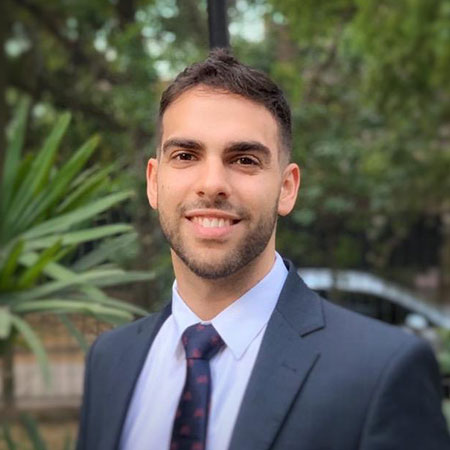
Karim Francisco Lionel Nayar Palomo
Coordinator of the Social Action Department United Nations Association for Argentina Republic (ANU-AR)Karim Francisco Lionel Nayar Palomo is an Advisor on matters of worship, interfaith and religious freedom of the Secretariat of Worship, Ministry of Foreign Affairs, International Commerce and Worship. Secretary for Educational Affairs of the “Instituto Islam para la Paz”(I4P). Coordinator of the Social Action Department of the United Nations Association of Argentina (ANU-AR). Senior law student and Teaching assistant in the subject “Theory of the State” at University of Buenos Aires. Former trainer in the International Relations Programme in Monseñor Dillon High School.
Speaker
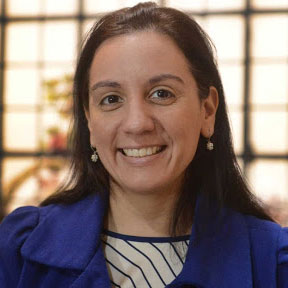
Nancy Falcón
Executive Director Alba Intercultural Dialogue Center, Buenos AiresNancy Falcón has a bachelor’s degree in political science from Buenos Aires University, Argentina and is currently working toward a PhD in philosophy. She works as the executive director of the Alba Intercultural Dialogue Center in Buenos Aires, dedicated to promoting intercultural dialogue through different cultures. Her experience in dialogue and education is related to work with young people from different faiths and cultures, carrying out interreligious projects and discussions on actions for peace. Her work in education and dialogue was awarded many times by Argentine organizations working for peace. As a result of her work she has been lecturer about education in United Nations and Pontifical Vatican Academy of Sciences.
Speaker
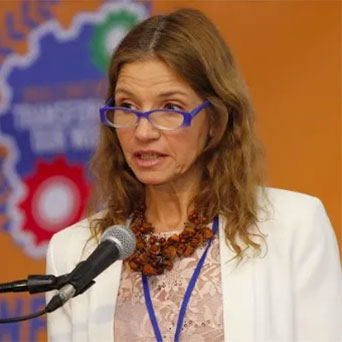
Silvia Perazzo
President United Nations Association for Argentina Republic (ANU-AR)Silvia Perazzo has a Master´s Degree in History from Tres de Febrero University (Argentina). She Works as a Lecturer at different universities from Argentina (UNDEF, UNLAM, USAL), where she teaches Contemporary African History and Contemporary Armed Conflicts. She is author of several articles related to African issues. Currently, she is the president of United Nations Association from Argentina Republic (UNA-AR) where she works on activities and projects related to education matters. She has participated in several international meetings of civil society such as UNGA 2019 Civil society Forum “Transforming our World” (New York), Civil20 2018 (Buenos Aires, Argentina), 67 United Nations Civil Society Conference “We, The People”, 2018 (New York) and III Civil Society Forum UNASUR 2017 (Quito, Ecuador).
Speaker
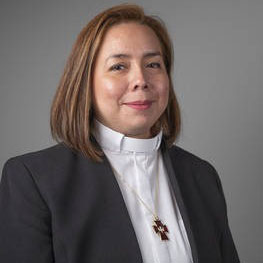
Arisbé Abelina Gómez
Lutheran Pastor in El Salvador and Founder Center of Reflection and DialogueArisbé Abelina Gómez is part of the new generation of pastors of the Salvadoran Lutheran Synod, serving in the Lutheran Cathedral "La Resurrección". She is also serving in other roles as a member of the board of directors of the Salvadoran Lutheran Synod, coordinator of the pastoral of the Family with a focus on youth, and is a special assistant to the bishop. In her youth she represented the Salvadoran Lutheran Synod in the youth council of the Lutheran World Federation, assuming the same role in the Latin American Council of Churches. She was involved in a project in the late 1990´s to learn about the reality of young people in prisons who belong to gangs called "Maras" sentenced to 30 years in prison or more, in order to find ways of accompaniment. This experience leads her to be more interested in working with youth in social conflict, understanding the roles of the church in conflict resolution and raising awareness about the historical commitment and the roles of the Church to build peace and reconciliation in society based on the Theology of Life.
More information: https://www.civil-20.org
Register here: https://bit.ly/Join-C20

